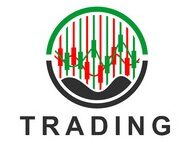In the ever-evolving landscape of Forex trading, the ability to employ advanced strategies is paramount for traders seeking not just survival, but sustained success. As the Forex market continues to be a dynamic and highly competitive arena, staying ahead is not merely an advantage; it’s a necessity. This introduction sets the stage for a deeper exploration into the crucial role that advanced strategies play in navigating the complexities of Forex trading. We will delve into why these strategies are essential, offering a glimpse into the intricacies of a market where adaptability and foresight are the keys to unlocking profitable opportunities. Join us on a journey to understand the profound significance of advanced strategies and how they empower traders to thrive in the fast-paced world of Forex.
Understanding the Basics:
Before embarking on the exploration of advanced strategies in Forex trading, it’s crucial to revisit the fundamental concepts that form the bedrock of this financial landscape. For those unacquainted with the basics, Forex, short for foreign exchange, is the global marketplace where currencies are bought and sold. Traders engage in this decentralized market to capitalize on fluctuations in currency values, aiming to profit from the rise or fall of one currency against another.
To appreciate the significance of advanced strategies, one must first grasp essential concepts such as currency pairs, pips, and the mechanics of buying and selling. A solid understanding of these fundamentals lays the groundwork for more intricate strategies, ensuring that traders possess the necessary knowledge to navigate the complexities that lie ahead.

Reinforcing the importance of a solid foundation cannot be overstated. Much like constructing a sturdy building requires a well-laid foundation, successful Forex trading relies on a comprehensive understanding of the basics. Advanced strategies build upon this foundation, leveraging the trader’s proficiency in recognizing trends, interpreting charts, and understanding the factors influencing currency movements.
As we delve into the realm of advanced strategies, keep in mind that a strong grasp of the basics is not a mere prerequisite but a continuous asset. Seasoned traders consistently emphasize the need to revisit and reinforce these foundational principles, emphasizing their enduring importance throughout one’s trading journey. In the next sections, we will unfold the layers of advanced strategies, each building upon the other, to equip you with the tools necessary for success in the dynamic Forex market.
Common Challenges in Forex Trading:
While the Forex market presents an array of opportunities, it is not without its challenges. Traders, both seasoned and novice, encounter hurdles that demand astute navigation and strategic finesse. Understanding these challenges is the first step towards devising effective solutions, and this section aims to shed light on the common obstacles faced in the dynamic world of Forex trading.
Market Volatility:
One of the foremost challenges is the inherent volatility of the Forex market. Currency values can experience rapid and unpredictable fluctuations, leading to potential gains or losses. Traders must contend with this inherent volatility, requiring a level-headed approach and the ability to adapt swiftly to changing market conditions.
Risk Management:
Effective risk management is an ongoing challenge for traders. Balancing the pursuit of profits with the need to protect capital demands a disciplined approach. The potential for significant financial swings necessitates a comprehensive risk management strategy, a facet where advanced strategies play a pivotal role.
Emotional Discipline:
The emotional aspect of trading is another hurdle that traders often grapple with. Fear, greed, and impatience can cloud judgment and lead to irrational decision-making. Advanced strategies not only provide a tactical framework for trading but also foster the emotional discipline required to weather the ups and downs of the market.
Market Complexity:
The sheer complexity of the Forex market can be overwhelming. Interconnected global factors, economic indicators, and geopolitical events contribute to a multifaceted trading environment. Traders need sophisticated strategies to parse through this complexity, identifying opportunities amidst the intricate web of market influences.
Leverage Risks:
While leverage can amplify profits, it also magnifies risks. Traders using leverage must contend with the potential for significant losses. Advanced strategies offer nuanced approaches to leverage, helping traders optimize its benefits while mitigating the associated risks.
Emphasizing the Need for Advanced Strategies:
To overcome these challenges, traders must go beyond conventional approaches. Advanced strategies serve as a shield against market uncertainties, providing a structured framework to navigate volatility, manage risks, and maintain emotional equilibrium. In the upcoming sections, we will delve into specific advanced strategies designed to address these challenges, equipping traders with the tools needed to thrive in the ever-shifting landscape of Forex trading.
Moving Beyond the Basics: Why Advanced Strategies Matter:
Now that we’ve laid the groundwork with a review of Forex fundamentals and an acknowledgment of the challenges traders face, let’s explore the transition from basic to advanced strategies and why this evolution is a pivotal juncture in a trader’s journey.
Differentiating Advanced Strategies:
Basic trading strategies often focus on fundamental concepts such as trend identification and basic technical analysis. While these are fundamental building blocks, advanced strategies delve deeper into the intricacies of the market. They involve a more nuanced understanding of technical indicators, chart patterns, and the integration of multiple analysis tools. Advanced strategies are characterized by their adaptability to various market conditions, offering a more sophisticated and multifaceted approach compared to basic strategies.
Potential Benefits of Advanced Strategies:
Increased Profitability:
One of the primary motivations for adopting advanced strategies is the potential for increased profitability. These strategies empower traders to identify and capitalize on more nuanced market opportunities. Whether through precise timing of entries and exits, leveraging advanced technical indicators, or employing sophisticated risk-reward ratios, advanced strategies aim to enhance the overall profitability of trading endeavors.
Risk Management:
Advanced strategies are inherently designed to address the challenges of risk in trading. By incorporating sophisticated risk management techniques, such as position sizing, diversified portfolio strategies, and adaptive stop-loss mechanisms, traders using advanced strategies can better safeguard their capital. This emphasis on risk management is integral to sustaining long-term success in the Forex market.
Adaptability to Market Conditions:
The Forex market is dynamic, with conditions ranging from trending to range-bound. Advanced strategies equip traders with the tools to adapt to diverse market scenarios. Whether it’s a trending market where momentum strategies shine, or a consolidating market where range-bound strategies excel, advanced strategies provide a comprehensive toolkit for navigating the ever-changing landscape.
Reduced Emotional Impact:
Emotional discipline is a cornerstone of successful trading, and advanced strategies contribute significantly to achieving this discipline. Through systematic approaches, algorithmic trading, and rules-based methodologies, these strategies help mitigate the impact of emotions on trading decisions, fostering a more rational and measured approach.
As we delve further into specific advanced strategies in the subsequent sections, keep in mind that the shift from basic to advanced is not just about complexity; it’s about empowering traders with a refined set of tools and insights that can significantly elevate their performance in the Forex market.
Risk Management Techniques:
In the dynamic realm of Forex trading, mastering risk management is not just a skill; it’s a cornerstone of sustained success. This section will delve into advanced risk management strategies, shedding light on key principles that can fortify a trader’s ability to navigate the inherent uncertainties of the market.
Risk-Reward Ratios:
One of the fundamental tenets of advanced risk management is the careful consideration of risk-reward ratios. This metric assesses the potential profit against the potential loss for a given trade. Advanced traders often adhere to a favorable risk-reward ratio, aiming to ensure that the potential reward justifies the risk undertaken. By maintaining a positive risk-reward profile, traders create a buffer that can offset losses and contribute to overall profitability over the long term.
Strategic Use of Stop-Loss Orders:
Stop-loss orders are powerful tools in risk management, serving as predefined exit points to limit potential losses. Advanced strategies involve a nuanced approach to setting stop-loss levels. Traders may utilize technical analysis, support and resistance levels, or volatility indicators to determine optimal placement for stop-loss orders. This strategic use of stop-loss orders helps protect capital while allowing trades the necessary breathing room to unfold.
Position Sizing Strategies:
Position sizing is a critical component of advanced risk management. Rather than adopting a one-size-fits-all approach, advanced traders tailor their position sizes to the specific risk parameters of each trade. This involves determining the appropriate percentage of capital to risk on a given trade, considering factors such as volatility, market conditions, and the trader’s risk tolerance. Position sizing strategies aim to optimize capital allocation, preventing disproportionate losses and preserving trading capital over the long term.
Diversification and Portfolio Management:
Beyond individual trade risk management, advanced strategies extend to the broader scope of portfolio management. Diversifying across different currency pairs and trading instruments can mitigate the impact of adverse movements in a single market. Traders often allocate capital across various assets, industries, or trading strategies to create a well-balanced portfolio that reduces overall risk exposure.
Adaptable Risk Management Plans:
Advanced traders recognize the fluid nature of the market and the need for adaptable risk management plans. Markets evolve, and unexpected events can impact trade dynamics. Advanced risk management involves regularly reassessing risk parameters, adjusting position sizes, and reevaluating risk-reward ratios based on changing market conditions.
In conclusion, effective risk management is not a static process; it’s a dynamic and evolving aspect of successful Forex trading. By integrating these advanced risk management techniques, traders can foster resilience, protect their capital, and position themselves for long-term success in the unpredictable world of Forex.





